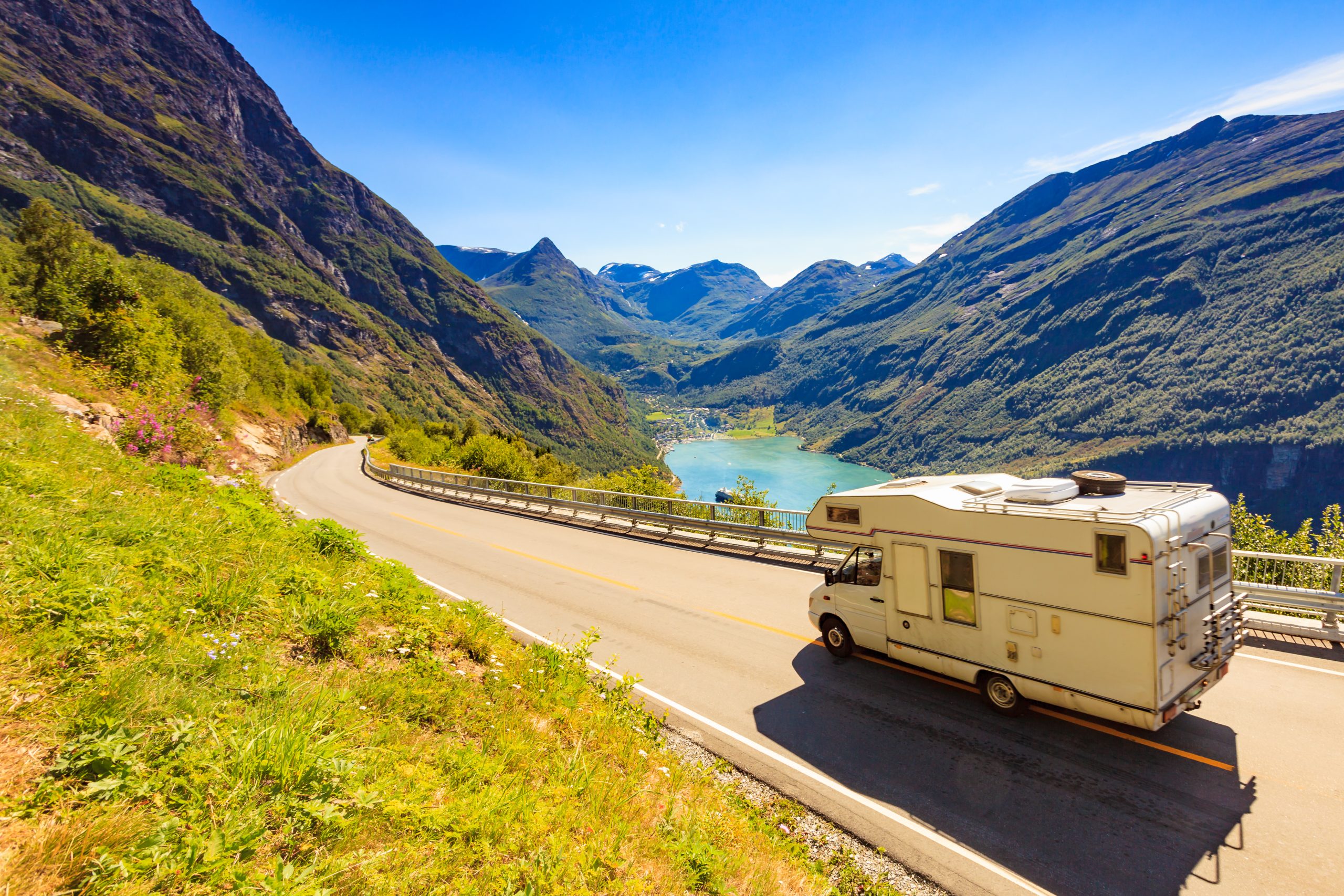Imagine your family’s RV is being serviced and your sibling offers their motorhome for your weekend getaway. Or perhaps you’re visiting relatives who own an RV and they suggest you take it for a trip to the nearby state park.
Can you legally operate someone else’s recreational vehicle? And what insurance considerations and RV driving safety protocols should you keep in mind?
Generally speaking, insurance coverage follows the RV itself. You can operate another person’s RV if you have their authorization, you’re not using the vehicle for commercial purposes, and you’re not specifically excluded from their RV insurance policy.
However, exact permissions and protections may differ depending on your state and insurance provider. Let’s explore whether RV insurance protects the vehicle or the operator.
Is it against the law to operate someone else’s RV?
In most cases, no. The majority of operators who aren’t named on an RV’s insurance documentation can still use the vehicle provided they have the owner’s authorization. This is commonly referred to as “permissive use.”
Simply put, permissive use assumes that whoever controls a recreational vehicle has permission to be there and understands basic RV driving safety principles. It also safeguards RV owners if the person operating their vehicle absolutely doesn’t have permission—if your RV is stolen, for instance, or someone takes your camper without consent, it’s considered non-permissive use. You won’t be held responsible for any damages they cause in an accident.
There are two primary ways to receive permission to operate someone else’s RV:
Direct permission: The RV owner gives you explicit, clear consent to use their vehicle by providing you with the keys.
Implied permission: You assume you can operate someone’s RV, perhaps because you’ve been permitted to do so previously.
Be aware that the legal answer to “Can I operate someone else’s RV?” varies across insurance policies and states — so ensure the vehicle owner verifies their RV insurance coverage details regarding permissive use before you take control of their recreational vehicle.
This verification is an essential RV driving safety step that protects everyone involved.
When operating someone else’s RV might not be legally covered
If any of these scenarios apply, an individual may not be insured to operate someone else’s RV — and it could even be illegal. Here are several reasons an operator may not be covered by an RV owner’s policy:
- They’re listed as an excluded operator on the policy: The RV owner may have specifically excluded certain individuals from their insurance policy due to factors such as lack of proper licensing or a history of driving violations.
- They don’t possess the appropriate license: If someone without proper licensing borrows and damages the RV, the owner’s insurance may not cover the resulting costs. Proper licensing is a fundamental aspect of RV driving safety and legal compliance.
- They lack permission to operate the vehicle: If someone takes an RV without authorization — or borrows it without either direct or implied permission — and they cause damage, the owner’s RV insurance policy may not cover the damages they’re responsible for. However, if the RV owner has comprehensive coverage, the vehicle itself will be protected from damages due to theft or vandalism.
- They’re impaired while operating: An insurance provider may deny coverage if someone damages an RV while under the influence of substances. Operating an RV while impaired is not only an insurance issue but a serious RV driving safety violation that endangers everyone on the road.
- They should have been included on the policy but weren’t: Some states require that an RV owner’s policy includes relatives residing at the same address or people who operate their RV regularly.
- They paid to use the RV: If the recreational vehicle is rented through a peer-to-peer service, the owner’s standard RV insurance typically doesn’t apply. A separate rental policy is usually necessary.
- They work for the RV owner: Most RV insurance policies may exclude household employees who use an RV as part of their duties.
- They’re using the RV for business purposes: Commercial use is a common exclusion on most RV insurance policies. If the owner or someone else is using the RV for business, including for paid tours or commercial transportation, the operator will likely need separate commercial vehicle insurance.
Do you need insurance to operate someone else’s RV?
If you have permission to operate an RV and experience an accident, the RV owner’s insurance will be the primary policy for any damages you cause. This means it will pay first, and any other applicable policies — like your own vehicle insurance—will be considered supplementary coverage that pays for damages exceeding the owner’s policy limits.
Understanding this insurance hierarchy is part of responsible RV driving safety preparation.
Here’s what the RV owner’s insurance policy should typically cover:
Liability insurance: The owner’s required liability coverage should pay for property damage and personal injury claims filed by other parties up to the owner’s policy limits.
Collision insurance: If the owner has added optional collision coverage to their policy, it will pay to repair or replace their RV after an accident, regardless of who was at fault. A deductible will typically apply.
Certain types of coverage may not extend to unlisted operators. For instance, if the RV owner has medical payments coverage or personal injury protection, it will typically follow them if they operate someone else’s vehicle but won’t cover you when operating theirs.
Note that if your policy includes comprehensive options like collision insurance and comprehensive insurance, that coverage likely won’t apply if you’re operating someone else’s RV. Everything depends on the specifics of your policy’s coverage.
Uninsured operators driving insured RVs
If you don’t have insurance and borrow an RV, you’re likely still covered by the vehicle-owner’s policy. However, any property damages or medical expenses that exceed their coverage limits will become your financial responsibility. The owner’s insurance will cover significant expenses up to their coverage limits, but you’re accountable for all remaining costs.
Expert Advice
Consider purchasing non-owner vehicle insurance rather than operating an RV without personal insurance. This protects operators during accidents even if they don’t own their own recreational vehicle.
Being added as a covered operator may be preferable
If you frequently borrow the same RV from the same owner, there are two main options: you can explore purchasing a non-owner policy or have the primary operator add you as a named operator on their policy. Most insurance providers require policyholders to list immediate family members, spouses, and other household members on their insurance policy.
You can also choose to list friends, family, or anyone else who is likely to use your RV, but you typically can’t add unrelated operators who live at different addresses. Remember that more operators listed on a policy generally means higher costs.
Be selective about who you add to your policy: High-risk operators with histories of accidents, traffic violations, insurance gaps, or poor credit added to your policy can increase your premiums.
The Final Word: RV Driving Safety
Ready to explore your RV insurance options? Contact Happy Camper today to discuss comprehensive coverage for all your RV, boat, and powersport vehicle operators. Unlike many RV insurance companies that offer one-size-fits-all policies, our team of specialists works with multiple providers to help you find the perfect protection plan that emphasizes both coverage and RV driving safety for your outdoor adventures!


